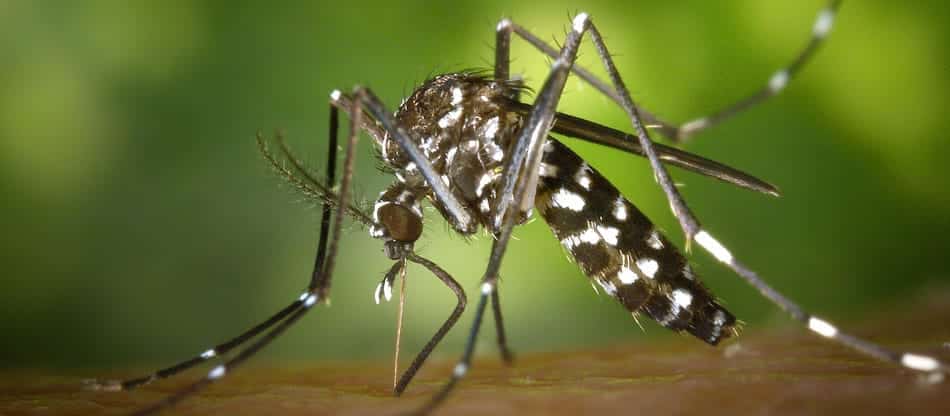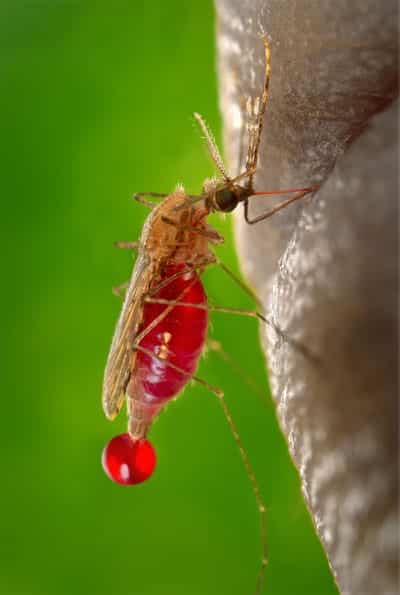
Protecting Yourself From Mosquitoes in New Jersey & Pennsylvania
Don’t let mosquitoes suck all the fun out of your summer gatherings
There’s nothing like the great outdoors, especially if you’ve invested a lot of time, energy, or money to make your own outdoor space welcoming and inviting. But few things turn an outdoor gathering from memorable to miserable faster than pesky mosquitoes.
Though mosquitoes have a long history of being a nuisance here in New Jersey, the recent increase in certain types of mosquito has meant that more diseases are now being spread by these flying pests.
FORGET SHARK WEEK, SKEETERS ARE THE REAL DANGER
You may have heard the trivia that cows kill more people each year than sharks, but did you know that mosquitoes are the most dangerous creature in the world? Yes, they’re pesky, their bites make you itch, and they make one of the most annoying noises in the world when they buzz past your ear. But the real danger is that they also spread deadly diseases.
While there are an average of 6 shark-caused deaths worldwide each year, and 20 caused by cows, mosquitoes are to blame for over 700,000 deaths each year.
Most of those deaths are from malaria, but mosquitoes also spread the Zika virus, West Nile virus, yellow fever, encephalitis, Dengue virus, and Chikungunya virus, among others. Mosquitoes can also spread canine heartworm. They cannot, however, transmit HIV.
Among the 174 mosquito species found in the northeast (including Pennsylvania and New Jersey), the most common are the Culex “house” mosquito and the Asian Tiger mosquito.
Aedes aegypti, the species best-known for carrying the Zika virus, has been spotted in New Jersey but is not yet common. However, the Asian Tiger mosquito has been known to also carry the Zika virus. Both types that carry the Zika virus can be distinguished by white stripes on their legs and thorax.
Learn more about the growing health threat in New Jersey from virus-carrying mosquitoes.
Fact sheet on the Zika Virus and New Jersey Mosquitoes
HOW MOSQUITOES FIND YOU/YOUR BLOOD

Female mosquito feeding
While male mosquitoes survive on nectar as a food source, females need the blood in protein for their eggs. Mosquitoes can smell your breath – specifically the carbon dioxide that we exhale. They can detect carbon dioxide from 75 feet away and will follow the “trail” until they find you. Mosquitoes are also attracted to certain chemical odors that are released in our sweat, as well as scented products like lotions and perfumes.
Once they find you, the mosquitoes use heat sensors around their mouths to find the best place to tap for blood – which is why they can seem to find your vein much more easily than someone drawing blood at the doctor’s office. This is why light clothing is suggested – black clothes trap heat, which attracts mosquitoes.
MOSQUITOES ARE NECESSARY
Now that we’ve told you all the bad things about mosquitoes, we thought we should stop for a moment and remind you that they are a necessary part of a healthy ecosystem. They are a food source for fish and dragonflies. They are one of the world’s most important pollinators. And of the 3,500 species of mosquitoes, only a few hundred types actually bother humans.
Mosquitoes don’t live very long. Males live 10 days or less. The females of some species will hibernate anytime the temperature drop below 50 degrees F and so can live up to six months. In species that don’t hibernate, the females live about six to eight weeks.
WHAT YOU CAN DO TO STOP MOSQUITO BITES
Mosquito “season” in New Jersey and Pennsylvania keeps getting longer, but it’s currently April through November.
Mosquitoes don’t travel far, don’t travel fast (they average about 1 to 1.5 mph), and don’t live very long. The combination of all of those things means that if you find mosquitoes on your property, they probably were born nearby. Focus your mosquito control efforts on your own property using the tips below.
1. Eliminate Standing Water
The number one thing you can do is to remove breeding grounds for mosquitoes – they lay their eggs (up to 300 at a time!) in any kind of standing water. It doesn’t have to be something large like a child’s swimming pool (although they love those) – it can be as small as a bottle cap filled with water.
Specifically, they like water that has been standing for a while. Some areas to check include:
• the inside of garbage cans,
• clogged rain gutters,
• pet bowls,
• bird baths (use a small fountain or solar powered “wiggler” to keep water moving),
• ceramic pots (and the saucers underneath them),
• pooling water on lawn furniture, or
• anything that traps water after it rains.
Clean your gutters annually, turn over wading pools when not in use, and ensure that there is no standing water on your property whenever possible.
Mosquitoes not only lay eggs in water, but they spend the first two stages of their lifespan under water. So eliminating any sources of water is vital to stopping the spread of mosquitoes.
2. Use Mosquito Repellants
Effective mosquito repellants include DEET and lemon-eucalyptus oil. Infants less than 2 months old should not use any type of repellant and children under 3 should not use eucalyptus oil. Always follow the application instructions on the label and don’t use more than recommended; more is not better.
Don’t bother with bug-zapping products; they usually end up killing more moths than mosquitoes (studies estimate that less that 1% of insects zapped are mosquitoes).
3. Keep Mosquitoes Out
Ensure that the screens in your windows do not have any tears or openings through which mosquitoes can enter.
Wear light-colored, long-sleeved shirts and pants that cover all your skin.
4. Spray Your Property to Control Mosquitoes
Here at Organic Plant Care, we offer organic mosquito control solutions. Our highly effective treatments are completely organic and safe for your children and pets. Unlike some other mosquito control programs, we do not use synthetic, toxic chemicals with dangerous health and environmental impacts.
Combined with the preventative measures mentioned above, a regular mosquito suppression treatment (ranging from 4 to 5 times during the “mosquito season”) can greatly reduce the number of mosquitoes on your property. Then you and your company can enjoy an outdoor party, a delicious barbeque, or maybe a refreshing drink on your patio without the nuisance and worry of disease-carrying mosquitoes.
